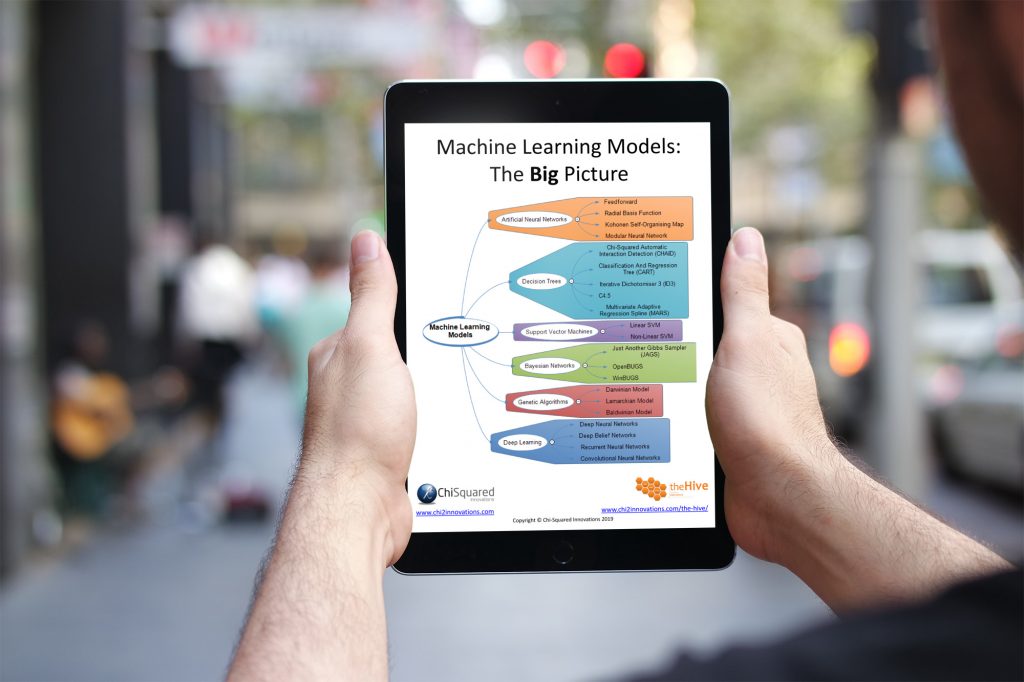The ethics of data science has become a HUGE issue in recent years, especially with the Cambridge Analytica scandal.
The big data ethics books we highlight in this blog post will give you a greater understanding of ethical data science and a glimpse of what our future world may look like - and trust me - it's going to be scary...
More...
Disclosure: we may earn an affiliate commission for purchases you make when using the links to products on this page. As an Amazon Affiliate we earn from qualifying purchases.
Why Are Ethics Important in Data Science?
There's no doubt about it that Big Data is a powerful discovery tool, but is it a force for good or are there some nefarious people out there doing questionable things with your data? This article on the World's Biggest Data Breaches & Hacks show an astonishing visualisation of how our data are increasingly being misappropriated, particularly in the past 5 years.
Are we beginning to see the end of a time when we can call ourselves 'private' citizens, or is there something we can do to regain and retain our privacy?
The big data privacy books in this post will help you decide.
Big Data is changing the world we live in and we've only just begun. A war will be waged over just what can ethically be done with your data, and the outcome is uncertain.
The ethics of data science and data ethics principles are something that all budding data scientists will need to know about.
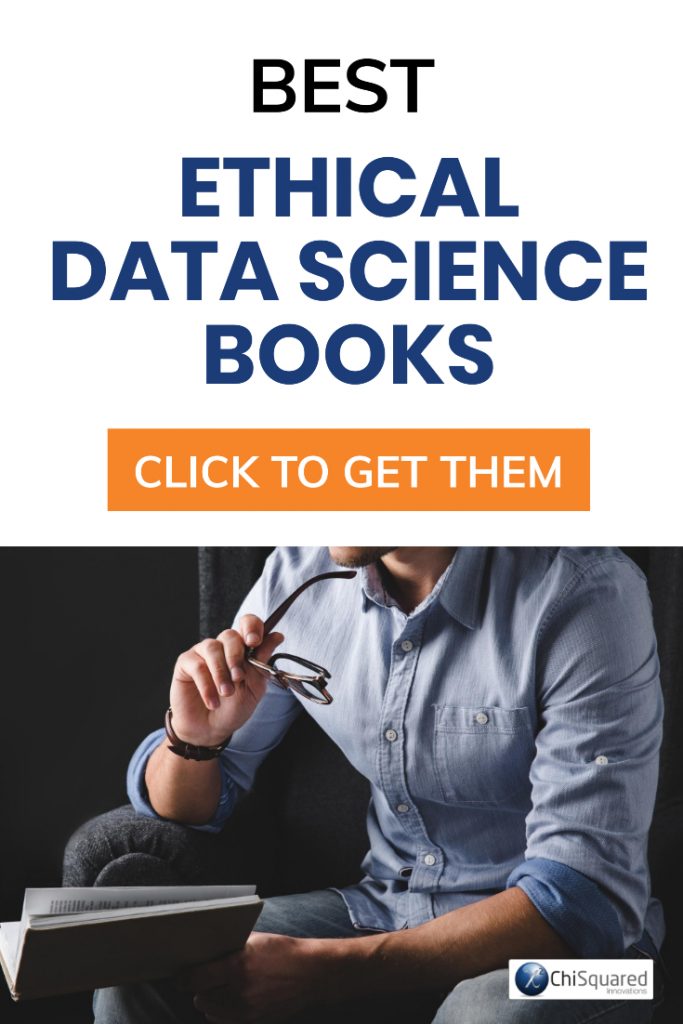
Pin it for later
Need to save this for later?
Pin it to your favourite board and you can get back to it when you're ready.
In the world of Big Data and Data Science there's a lot of discussion about what we can do with data but precious little about what we should or - more importantly - what we should not do with data.
The big data ethics books in this blog post will help you get a greater understanding of the ethical issues of big data and give us a small glimpse of what our future world may look like.
Welcome to the scary world of big data ethics!
Big Data Ethics Books for Aspiring Data Scientists @chi2innovations #datascience #bigdata #dataethics
What Is (or is Not) Ethical Use of Data
If ethics in general are important, should big data ethics training be a crucial element of data science?
We think it should be!
In an excellent article on KDnuggets, Jay Taylor highlighted 3 key ethical data science guidelines:
- 1Collect Minimal Data - Aggregate it for Privacy
- 2Identify and Anonymise Sensitive Data
- 3Have a Plan Set in Motion in Case Your Insight Backfires
When Big Data Ethics Gets it Wrong - A Cautionary Tale!
I particularly enjoyed the story (orginally from a Business Insider piece) of how the retailer Target developed a method of identifying, from 25 items bought together, that indicated when a customer was pregnant, and sent out related coupons accordingly.
An angry father of a teenage daughter stormed into his local Target and ranted at the store manager:
“My daughter got this in the mail!” the man said to a manager. “She’s still in high school, and you’re sending her coupons for baby clothes and cribs? Are you trying to encourage her to get pregnant?”
The manager had no idea what the man was talking about, but sure enough, the coupons were addressed to the man’s daughter and contained advertisements for maternity clothing, nursery furniture and pictures of smiling infants.
The manager apologised and then called a few days later to apologise again.
On the phone, though, the father was somewhat abashed.
“I had a talk with my daughter,” he said. “It turns out there’s been some activities in my house I haven’t been completely aware of. She’s due in August. I owe you an apology.”
So was this an example of poor ethics of data science?
Not necessarily, but it does highlight the fact that ethical data science requires an incredible amount of thought and care.
The big data ethics books in this post will help you to understand the consequences of working with data and the data ethics principles involved.
Did you know that you can get Data Science audiobooks for FREE with an Audible Trial?
Top 3 Ethical Data Science Books
In this post - the 8th in a series of 8 in which we bring you 21 Inspirational Books for All Aspiring Data Scientists, we highlight 3 big data ethics books to introduce you to the ethics of data science:
They are all highly entertaining (if a little scary) books about ethical data science and will give you an idea of what the world could look like in the future. Just try not to have nightmares...
If none of these inspire you (although they probably should), there are lots more data ethics books and data privacy books further down the page.
Enjoy!
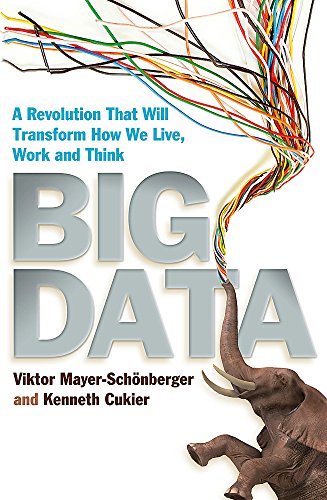
4.2 of 5 stars
Big Data
A Revolution That Will Transform How We Live, Work, and Think
Viktor Mayer-Schönberger and Kenneth Cukier
It seems like “big data” is in the news every day, as we read the latest examples of how powerful algorithms are teasing out the hidden connections between seemingly unrelated things...
It seems like “big data” is in the news every day, as we read the latest examples of how powerful algorithms are teasing out the hidden connections between seemingly unrelated things. Whether it is used by the NSA to fight terrorism or by online retailers to predict customers’ buying patterns, big data is a revolution occurring around us, in the process of forever changing economics, science, culture, and the very way we think.
But it also poses new threats, from the end of privacy as we know it to the prospect of being penalized for things we haven’t even done yet, based on big data’s ability to predict our future behavior. What we have already seen is just the tip of the iceberg.
Big Data is the first major book about this earthshaking subject, with two leading experts explaining what big data is, how it will change our lives, and what we can do to protect ourselves from its hazards.
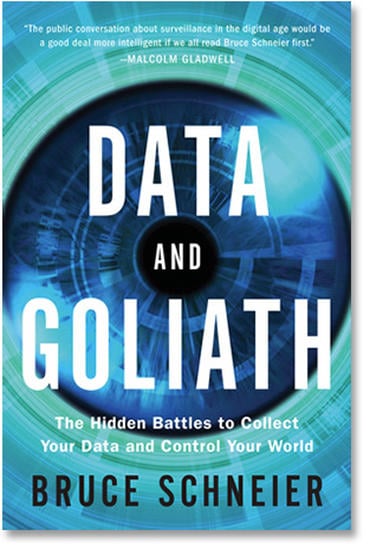
4.5 of 5 stars
Data and Goliath
The Hidden Battles to Collect Your Data and Control Your World
Bruce Schneier
You are under surveillance right now.
Your cell phone provider tracks your location and knows who’s with you. Your online and in-store purchasing patterns are recorded, and reveal if you’re unemployed, sick, or pregnant...
You are under surveillance right now.
Your cell phone provider tracks your location and knows who’s with you. Your online and in-store purchasing patterns are recorded, and reveal if you’re unemployed, sick, or pregnant. Your e-mails and texts expose your intimate and casual friends. Google knows what you’re thinking because it saves your private searches. Facebook can determine your sexual orientation without you ever mentioning it.
The powers that surveil us do more than simply store this information. Corporations use surveillance to manipulate not only the news articles and advertisements we each see, but also the prices we’re offered. Governments use surveillance to discriminate, censor, chill free speech, and put people in danger worldwide. And both sides share this information with each other or, even worse, lose it to cybercriminals in huge data breaches.
Much of this is voluntary: we cooperate with corporate surveillance because it promises us convenience, and we submit to government surveillance because it promises us protection. The result is a mass surveillance society of our own making. But have we given up more than we’ve gained? In Data and Goliath, security expert Bruce Schneier offers another path, one that values both security and privacy. He shows us exactly what we can do to reform our government surveillance programs and shake up surveillance-based business models, while also providing tips for you to protect your privacy every day. You’ll never look at your phone, your computer, your credit cards, or even your car in the same way again.
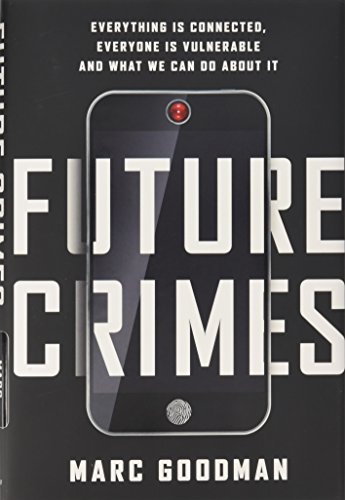
4.5 of 5 stars
Future Crimes
Everything Is Connected, Everyone Is Vulnerable and What We Can Do About It
Marc Goodman
One of the world’s leading authorities on global security, Marc Goodman takes readers deep into the digital underground to expose the alarming ways criminals, corporations, and even countries are using new and emerging technologies against you...
One of the world’s leading authorities on global security, Marc Goodman takes readers deep into the digital underground to expose the alarming ways criminals, corporations, and even countries are using new and emerging technologies against you – and how this makes everyone more vulnerable than ever imagined.
Technological advances have benefited our world in immeasurable ways, but there is an ominous flip side: our technology can be turned against us. Hackers can activate baby monitors to spy on families, thieves are analyzing social media posts to plot home invasions, and stalkers are exploiting the GPS on smart phones to track their victims’ every move. We all know today’s criminals can steal identities, drain online bank accounts, and wipe out computer servers, but that’s just the beginning. To date, no computer has been created that could not be hacked – a sobering fact given our radical dependence on these machines for everything from our nation’s power grid to air traffic control to financial services.
Yet, as ubiquitous as technology seems today, just over the horizon is a tidal wave of scientific progress that will leave our heads spinning. If today’s Internet is the size of a golf ball, tomorrow’s will be the size of the sun. Welcome to the Internet of Things, a living, breathing, global information grid where every physical object will be online. But with greater connections come greater risks. Implantable medical devices such as pacemakers can be hacked to deliver a lethal jolt of electricity and a car’s brakes can be disabled at high speed from miles away. Meanwhile, 3-D printers can produce AK-47s, bioterrorists can download the recipe for Spanish flu, and cartels are using fleets of drones to ferry drugs across borders.
With explosive insights based upon a career in law enforcement and counterterrorism, Marc Goodman takes readers on a vivid journey through the darkest recesses of the Internet. Reading like science fiction, but based in science fact, Future Crimes explores how bad actors are primed to hijack the technologies of tomorrow, including robotics, synthetic biology, nanotechnology, virtual reality, and artificial intelligence. These fields hold the power to create a world of unprecedented abundance and prosperity. But the technological bedrock upon which we are building our common future is deeply unstable and, like a house of cards, can come crashing down at any moment.
Future Crimes provides a mind-blowing glimpse into the dark side of technological innovation and the unintended consequences of our connected world. Goodman offers a way out with clear steps we must take to survive the progress unfolding before us. Provocative, thrilling, and ultimately empowering, Future Crimes will serve as an urgent call to action that shows how we can take back control over our own devices and harness technology’s tremendous power for the betterment of humanity – before it’s too late.
6 More Ethical Data Science Books
The data ethics books above are our favourites, but they're not the only books about the ethics of data or about data privacy.
Below are a few others that might just take your fancy...
Another 6 Ethical Data Science Books
Still here?
Maybe the above books about the ethics of data science didn't quite hit the spot.
Not to worry - here's another 6:
The Best Ethical Data Science Books - Summary
Unless you're planning to be a super-villain and take over the world, then the ethics of data science and data ethics principles should be fairly high on your list of priorities.
Hopefully, the data ethics books in this post will help you along the path to ethical data science enlightenment.
Are there any data ethics books that I've missed out?
Leave a comment below and I'll add it to the post!
This post forms part of a series on the best books to get started in Data Science.
For more detail, choose from the options below:

